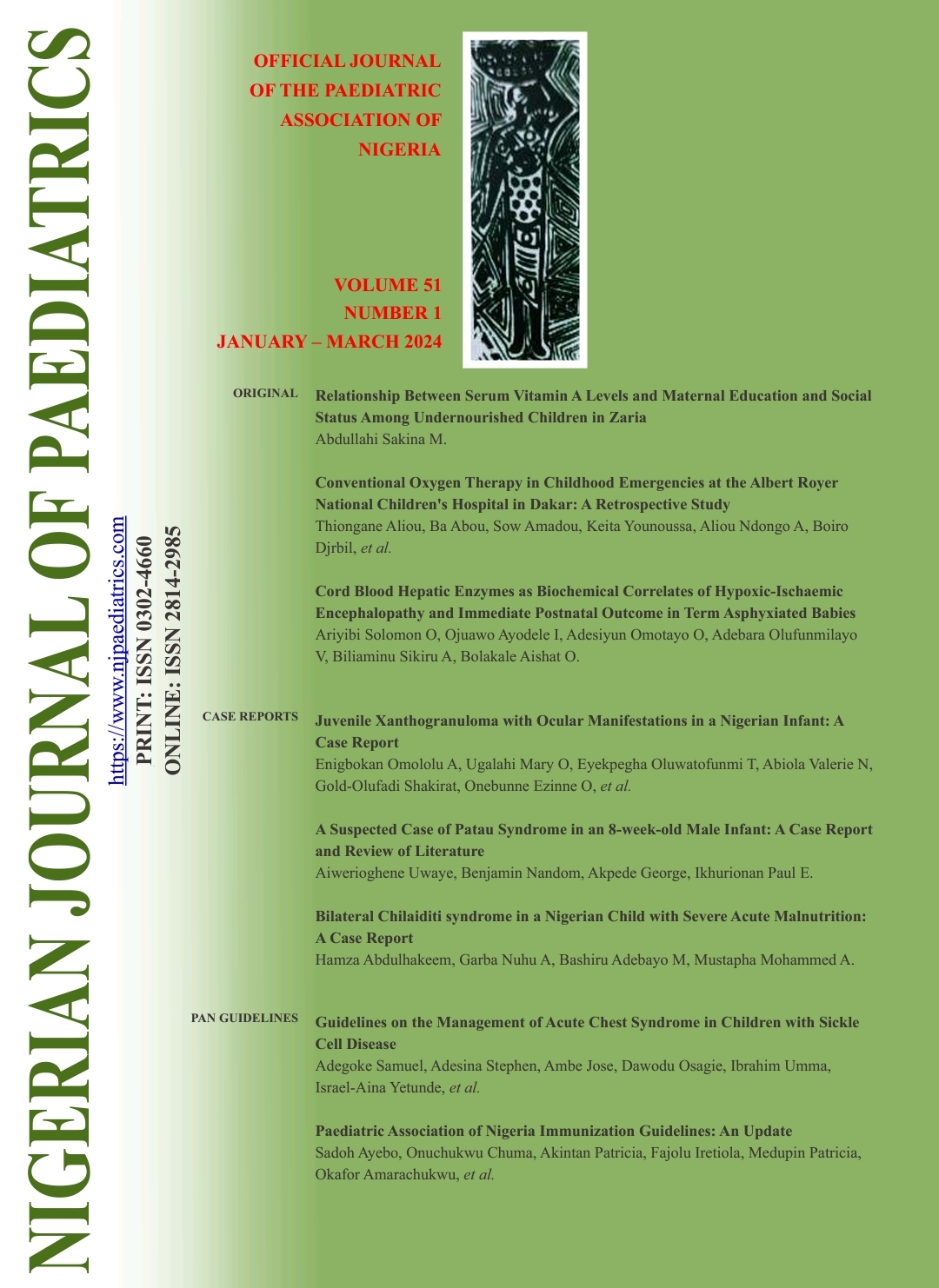Prevalence and Factors Associated with Intellectual Disability Among African Children with Epilepsy
Keywords:
Children, Epilepsy, Health-Related Quality of Life, Intellectual disability, Mental retardation, Seizure disorderAbstract
Background: Sub-Saharan Africa contributes significantly to the people living with disability, including epilepsy and intellectual disability (ID) in Low- and middle-income countries (LMIC). Epilepsy is already associated with treatment gaps, stigma and poor Health-Related Quality of Life (HRQoL) in sub-Saharan Africa. Still, the impact is more significant when children living with epilepsy also have ID.
Objective: To assess the prevalence and factors associated with intellectual disability among children with epilepsy (CWE).
Methods: This cross-sectional study was conducted among CWE aged 15 months to 18 years compared to 100 age and sex-matched controls without epilepsy. The Vineland Adaptive Behavioural Scale II was used to detect intellectual disability.
Results: Each group consisted of 55 males and 45 females with median (IQR) ages of 8 (4-13) and 9 (5-13) years in CWE and controls, respectively. The prevalence of intellectual disability among CWE (36%) was significantly higher than the prevalence of epilepsy in the control group (2%) (p<0.001). Factors associated with the presence of ID among CWE include the onset of epileptic seizures before the age of one year (Χ2 = 16.07, p = 0.001), polytherapy (Χ2 = 8.375, p = 0.004), severe seizures (Χ2 = 4.63, p = 0.031), non-school enrolment (Χ2 =31.62, p = <0.001).
Conclusion: The prevalence of ID is high among children with epilepsy. Those with early seizure onset or severe seizures and those on polytherapy deserve closer attention, and screening for ID should be routinely conducted in CWE.
Downloads
Published
Issue
Section
License
Copyright (c) 2025 NIGERIAN JOURNAL OF PAEDIATRICS

This work is licensed under a Creative Commons Attribution 4.0 International License.
This is an open-access journal, and articles are distributed under the terms of the Creative Commons Attribution 4.0 License, which allows others to remix, transform, and build upon the work even, commercially, as long as appropriate credit is given to the author, and the new creations are licensed under identical terms

